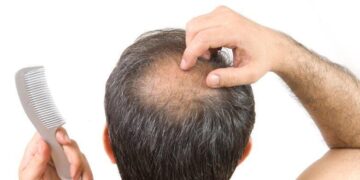Sleep hygiene involves not only the total number of hours but also the continuity of sleep to complete healthy sleep cycles. However, people with sleep disorders often experience nighttime awakenings, spending hours trying to fall back asleep. The restlessness and anxiety in the middle of the night can lead to both mental and physical exhaustion.
Remember, nighttime awakenings are normal, especially if you fall back asleep easily. However, if they occur frequently and you struggle to get sufficient rest, this can end up in sleep inertia. This is a mental state characterized by impaired cognition and grogginess upon waking. It can negatively impact your health and daily performance, so timely interventions are essential. In this article, we will discuss some practical tips for falling asleep again so you wake up mentally refreshed and energetic.
How to Go Back to Sleep Quickly?
Falling back to sleep may take longer than the first time, but you can speed it up with the following relaxation techniques for sleep:
1. Deep Breathing
Deep breathing exercises are one of the quickest ways to calm your mind and body. You can easily perform it without leaving your bed; simply inhale air through your nostrils and exhale through your mouth. Try to hold your breath for 6 to 7 seconds before exhaling.
Slowly inhale and exhale air, as this process is effective in reducing anxiety, a common symptom of nighttime awakenings. According to research, deep breathing is effective for addressing arousing pressure to get back to sleep. However, more study is required to understand the link between deep breathing and sleep quality.
2. Sleep Supplements
Sleep supplements are also natural remedies for sleep disturbances, offering calming effects. For example, gummies, when taken in the recommended dosage, help you fall asleep again whenever nighttime interruptions occur.
These supplements may help reduce stress and depression symptoms, leading to peaceful nights of sleep without interruptions. However, before using this product long-term, always consult your healthcare provider to avoid any potential side effects.
3. Calming Environment
Atmosphere plays a vital role in having an uninterrupted night. If you face night awakenings, then analyze your bedroom environment to remove all distractions and disturbing factors. With decluttering, you can easily overcome the issue if there are no other underlying medical reasons.
Try adding more warmth and comfort to your room, either through lavender aromatherapy or maintaining a moderate to low temperature. Also, ensure you keep the lights dim to stimulate the production of melatonin, a hormone that promotes sleep. These simple steps make your room relaxing, allowing for a smooth transition to sleep.
4. Don’t Leave Your Bed
Some people, once they fail to fall asleep again, indulge in other activities, such as scrolling through their mobile devices and reading books. This further increases the non-sleep duration, keeping your mind alert. Try to remain in bed, even if you don’t feel sleepy, and avoid unnecessary trips to the bathroom.
Just be calm and lie down with minimal body movements, as this resting phase continues to rejuvenate your body. It helps keep the heartbeat slow, a vital factor in sleep restoration. Although it’s not the same as sleep, it still offers sufficient rest, helping you start the morning feeling refreshed.
5. Be Gentle with yourself
Don’t force or stress about awakening, as anxiety is the biggest hurdle toward sleep restoration. When you’re tense about your poor sleep quality, it takes longer than usual to fall back asleep.
Remind yourself that night awakenings are normal for every age group. If you’re a senior, then their frequency is also high, so why frustrate yourself about a natural process? Instead, indulge in relaxing activities like a head massage, acupuncture, or herbal tea to help you transition smoothly into a restful sleep state.
Bottom Line
Sleep is the basic bodily requirement for smooth mental and physical functioning. You can easily maintain your sleep hygiene after nighttime waking with all the above-mentioned natural tactics.
Remember, what works for others may not give you the same results, so keep exploring new remedies that you find relaxing enough for successful sleep restoration. Don’t forget to share your valuable suggestions with us so others can benefit too.













